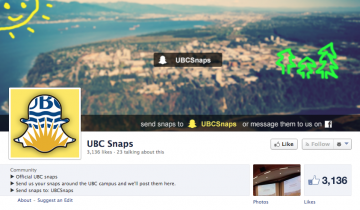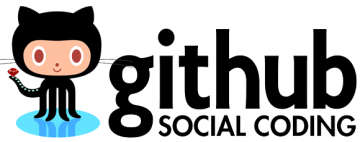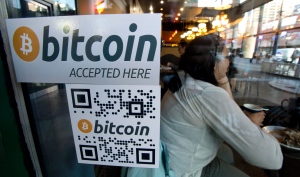Following a horrific shooting in Santa Barbara, that left seven students dead and over a dozen injured, news of the massacre spread on social media like wildfire. In the days that followed, it was uncovered that the shooter had a YouTube channel dedicated to promoting misogynistic ideas, and had left a deep Internet archive documenting hateful and disturbing tendencies. This discovery shifted on and offline conversations of the incident from gun control and mental health to a more overarching discussion of the everyday sexism and misogyny that runs rampant and often unchecked in societies worldwide.
Women around the world took to Twitter to share their stories, mobilizing through the #YesAllWomen hashtag – a catchphrase designed to counter the #NotAllMen trend often used to discount complaints about misogyny. Within four days the hashtag had drawn over 1.2 million tweets, with women expressing their grievances and experiences with harassment, fear, and even violence.
The #YesAllWomen hashtag effectively spurred a conversation many had wanted to initiate for years. The shocking prevalence of the stories shared spoke to the universality of the themes addressed, in a sense crowdsourcing the construction of a vocabulary for discussing feminism in the 21st century. Often a sidelined and quickly dismissed issue, #YesAllWomen pushed discussions of misogyny into the mainstream. The conversation became virtually impossible to ignore as journalists and social commentators alike began to cover the trend, moving the conversation from social media to more traditional news sources. Within hours, three simple words preceded by a # effectively gave voice to a conversation decades in the making.
The use of hashtags as centerpieces for framing discussions of social issues is a relatively new, but increasingly recurring phenomenon in the world of social media. In December 2013 the #NotYourAsianSidekick hashtag served as a powerful rallying point to discuss the stereotypes and discrimination often faced by Asian-Americans. Several months earlier, the #SolidarityIsForWhiteWomen hashtag sparked a discussion of the ways women of color are presented and discussed by mainstream media outlets.
Hashtags have not only been used to frame discussions and bring light to previously ignored issues. Increasingly, they are being used as tools to promote awareness, and to pressure politicians into taking action. A prominent example of this trend arose in April 2014. Following the kidnapping of 300 Nigerian schoolgirls by Boko Haram, the hashtag #BringBackOurGirls gained major traction in Nigeria, before crossing the Atlantic and trending in the United States. Celebrities and politicians alike (including the Obamas themselves) were quick to jump on the hashtag train, posting the phrase on their social media pages.
Another prime example of hashtag-driven activism has centered on the plight of journalists unjustly detained for doing their jobs. During the Egyptian revolution in January 2011, prominent journalist and activist Mona Eltahawy was beaten and detained by the Ministry of Interior. Able to tweet her location before her belongings were confiscated, news of her arrest quickly spread to her thousands of Twitter followers, who began the #FreeMona hashtag pressuring the Egyptian government to release her. Eltahawy eventually went free, and cites that as a freelance journalist with no news organization backing her up, the Twitter community that rallied around the #FreeMona hashtag is what saved her.
A similar situation is currently in play. After several Al Jazeera English staff members were detained in Egypt, the #FreeAJStaff hashtag was promoted by journalists and citizens around the globe. While ongoing, the campaign has thus far failed to produce any concrete results.
Viral hashtags have not only centered on political and social issues. Others have simply gone viral because they are humorous, or simply too dramatic to ignore. Justine Sacco, ironically a high-profile PR executive, tweeted a blatantly racist message shortly before boarding an international flight to Cape Town. Soon afterwards, her offensive joke began to spread on Twitter. The #HasJustineLandedYet hashtag eventually trended worldwide, as Sacco remained blissfully unaware of the firestorm of anger she would face upon landing. The event ended with Sacco deleting her account, issuing a public apology, and being fired from her job.
What is it that makes hashtags such effective rallying points? Conversely, while hashtags provide an efficient and low cost mechanism through which to spread a message, what are their limitations in bringing about social awareness and change?
The ease with which messages can be spread via social media is simultaneously the medium’s strength and weakness. The facility and speed with which tweets can be sent out means that there is very little opportunity cost involved in doing so. It is now easier than ever to become involved in global discussions and campaigns of social issues. The double edged sword of this open-ended involvement is that it has also facilitated the rise of “slacktivism,” a trend wherein individuals participate in social campaigns online – by tweeting or posting a picture, for example – without contributing any meaningful change on the ground. While the #BringBackOurGirls hashtag has faded from the headlines and from most twitter feeds, the kidnapped girls have not been returned to their families. The #FreeMona hashtag may have contributed to liberating Mona Eltahawy amid the chaos of the Egyptian revolution, however Al Jazeera journalists detained in Egypt under a much more consolidated state have yet to be freed. Indeed, the liquid potential of a hashtag to bring about concrete change is still being tested.
Hashtags also face limitations in their simplicity. Messages being spread via a few keywords have the potential to quickly be manipulated and distorted. While the #BringBackOurGirls hashtag brought awareness to the plight of the 300 schoolgirls, it was also used to promote the idea of an American military intervention in Nigeria – a cause strongly opposed by the grassroots Nigerian activists who originally began the online campaign. Similarly, Ramaa Mosley, an American film director and documentarian, gave several high-profile interviews in which she claimed to have launched the campaign. While Twitter’s analytics’ tools quickly disproved this rumor by demonstrating that the hashtag was created in Nigeria, Mosley’s attempt to hijack the campaign in order to promote her own for-profit documentary exemplifies a dangerous tendency for online movements to be derailed.
As for #YesAllWomen, what is the future of the viral hashtag? For now, the trend has served to enable and frame a conversation about the everyday sexism faced by millions of people worldwide. While the trend has no leader or concrete objective, discussion for discussion’s sake is not in vain. As for the power of hashtags to bring about meaningful change and empower “netizens” around the world, the true potential of the tool remains to be seen.











 What do two types of beer, vodka, milk, a spider, and four dead mice have in common?
What do two types of beer, vodka, milk, a spider, and four dead mice have in common?
